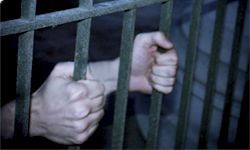9th Circuit puts hold on felon voter ruling … for now
 The 9th Circuit Court of Appeals has agreed to temporarily suspend their ruling that threw out Washington’s longstanding ban on voting by felons. The court granted the request by Secretary of State Sam Reed, Attorney General Rob McKenna and Governor Chris Gregoire to place a hold on the controversial ruling while the state pursues a challenge to the U.S. Supreme Court.
The 9th Circuit Court of Appeals has agreed to temporarily suspend their ruling that threw out Washington’s longstanding ban on voting by felons. The court granted the request by Secretary of State Sam Reed, Attorney General Rob McKenna and Governor Chris Gregoire to place a hold on the controversial ruling while the state pursues a challenge to the U.S. Supreme Court.
The court granted the request Thursday in a three-paragraph order, agreeing to not issue a “mandate” that would have required the state and county election officials to immediately begin allowing inmates and felons on community supervision to register and to cast ballots.
Reed said he was pleased that the state will have the opportunity to press its case to the Supreme Court without having to deal with immediate implementation of felon voting. Many counties are running special elections as we speak, with ballots due by Feb. 9. (Pierce also has some polling places.) Reed added:
“We’re optimistic that the high court will agree to hear this case and ultimately will uphold the longtime practice of most states in this country to suspend felons’ voting rights when they are in prison or still on parole. Certainly, we want ex-felons to eventually connect back with their home communities, including voting, but we also believe it is a reasonable and rational sanction for society to take away the voting right of people who have been convicted of serious crimes and are serving their sentence.”
Earlier this month, the Appeals Court handed down the surprise 2-1 ruling in a case brought in U.S. District Court in Eastern Washington almost 14 years ago by Muhammad Shabazz Farrakhan and five other minority inmates. The challengers said minorities are disproportionately prosecuted and sentenced to prison, and that their automatic disenfranchisement violates the federal Voting Rights Act.
The Appeals bench concurred with the inmates that the state’s criminal justice system is “infected” with racial discrimination and that the challengers don’t have to prove that that it is intentional or racially motivated discrimination. The court held that the VRA, adopted in 1965 for the purpose of eliminating the country of racial discrimination in voting, thus does not permit disenfranchising voters who are behind bars.
Three other circuits, the First, Second and Eleventh, have reached the opposite conclusion about felon voting. McKenna, who intends to personally argue the case if the Supreme Court accepts review, says 48 states have a similar ban on felon voting, and that in Washington’s case, the policy goes back to territorial days.